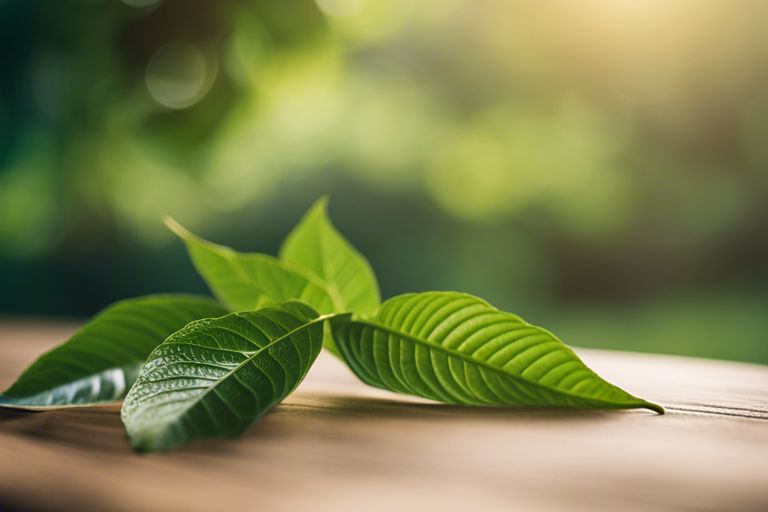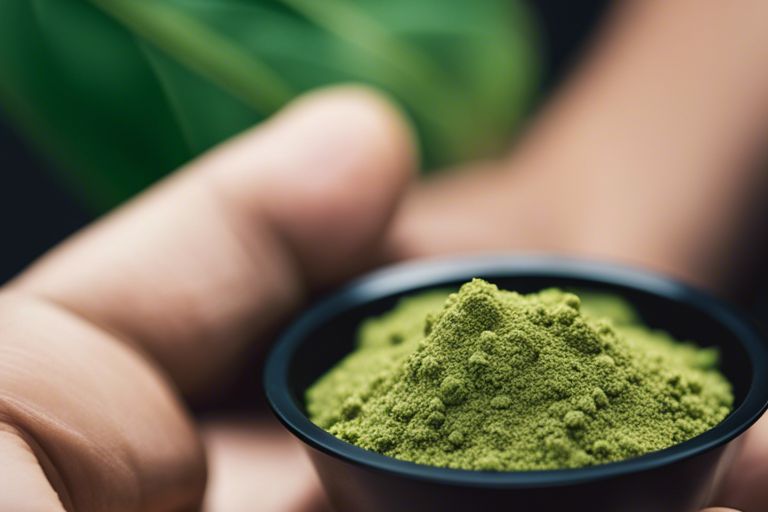Kratom, a plant native to Southeast Asia, has gained popularity in Western countries for its potential effects on mental health. While proponents suggest it can help with anxiety, depression, and focus, there are also concerns about its addictive properties and potential for abuse. Understanding how kratom interacts with the brain and its impact on mental well-being is crucial for those considering its use.
Key Takeaways:
- Kratom can have varied effects on mental health: While some individuals report positive effects such as improved mood and reduced anxiety, others may experience negative effects such as increased anxiety, irritability, and even psychosis.
- Individual responses to kratom can differ: Factors such as dosage, frequency of use, and individual differences in biology can influence how kratom affects mental health. It is important to monitor one’s own reactions to kratom and consider seeking professional guidance if needed.
- Caution and moderation are advised: Due to the potential risks associated with kratom use, including dependence and addiction, it is crucial to approach its consumption with caution and moderation. Consulting healthcare professionals and staying informed about the latest research can help individuals make informed decisions about kratom use.


The Basics of Kratom
What is Kratom?
To understand the effects of kratom on mental health, it is crucial to grasp what kratom is. Kratom (Mitragyna speciosa) is a tropical tree native to Southeast Asia, belonging to the coffee family. The leaves of the kratom tree contain compounds that have psychoactive (mind-altering) properties when consumed in high doses. Kratom is known for its dual stimulant-sedative effects, and it is commonly used for its pain-relieving and mood-enhancing properties.
History and Traditional Use
One of the fascinating aspects of kratom is its rich history and traditional use in Southeast Asia. Kratom has been used for centuries by indigenous communities in Thailand, Malaysia, Indonesia, and other neighboring countries. In these regions, kratom was traditionally consumed by chewing on the fresh leaves or brewing them into a tea for its stimulant effects, pain relief, and to combat fatigue.
Basics: The leaves of the kratom tree contain compounds that have psychoactive properties. Kratom is known for its dual stimulant-sedative effects and is commonly used for its pain-relieving and mood-enhancing properties. Kratom has a rich history of traditional use in Southeast Asia, where it has been used for centuries for its stimulant effects, pain relief, and fatigue-combating properties.
Kratom’s Psychological Effects
Some studies suggest that kratom may have a range of psychological effects, including mood enhancement, anxiety and stress relief, and pain management. These effects can vary depending on the strain and dosage of kratom consumed.
Mood Enhancement
With its potential to boost mood, kratom is often used by individuals seeking a natural way to elevate their spirits. Users report feeling a sense of euphoria and increased motivation after consuming kratom. However, it’s crucial to note that excessive use of kratom for mood enhancement can lead to dependence and addiction.
Anxiety and Stress Relief
Psychological studies have shown that kratom may have anxiolytic properties, meaning it could help reduce symptoms of anxiety and stress. Many users claim that kratom helps them relax and unwind after a long day, promoting a sense of calmness and well-being.
It is important to approach kratom as a supplemental tool for managing anxiety and stress, rather than a primary solution. Regular, excessive consumption of kratom can lead to negative side effects and dependency.
Pain Management
Anxiety can often manifest physically in the form of chronic pain. Kratom is believed to help manage pain by interacting with the body’s opioid receptors, providing relief to individuals suffering from conditions such as arthritis and fibromyalgia. Many users have reported significant pain reduction after consuming kratom.
This natural pain management alternative should be used cautiously, as long-term use of kratom for pain relief can lead to tolerance and potential negative health consequences.
The Science Behind Kratom’s Mental Health Effects
Your journey into understanding the effects of kratom on mental health begins with entering into the science behind how this botanical substance interacts with the body. By exploring the intricate mechanisms in the brain that are influenced by kratom, we can better comprehend its potential mental health benefits.
Opioid Receptors and Kratom
With kratom’s active compounds, such as mitragynine and 7-hydroxymitragynine, binding to opioid receptors in the brain, it can impact mood, anxiety, and stress levels. These interactions mimic the effects of opioids but with less risk of respiratory depression and physical dependence, making kratom a subject of interest for mental health support.
Serotonin and Dopamine Regulation
Receptors for serotonin and dopamine, neurotransmitters that play vital roles in regulating mood and emotions, are also influenced by kratom. By modulating these neurotransmitters’ levels, kratom may help in alleviating symptoms of depression and anxiety, offering a potential natural alternative for individuals seeking mental health support.
Health: Understanding how kratom affects serotonin and dopamine regulation can provide insights into its potential for managing mental health conditions. By impacting these neurotransmitters, kratom may offer a unique avenue for individuals looking for holistic approaches to improve their well-being.
Brain Chemistry and Kratom
Kratom’s ability to interact with various neurotransmitter systems in the brain, including GABA, glutamate, and adrenergic receptors, contributes to its complex effects on mental health. By modulating these pathways, kratom can influence mood, cognition, and stress responses, showcasing its potential as a natural remedy for mental well-being.
Plus: The intricate interplay between kratom and brain chemistry highlights the compound’s multifaceted effects on mental health. By understanding these interactions, researchers and users can explore the full scope of kratom’s potential benefits and risks.
Kratom’s Impact on Mental Health Conditions
Depression and Kratom
With the rising prevalence of depression globally, many individuals are seeking alternative remedies such as kratom to alleviate their symptoms. Some users of kratom claim that it helps elevate their mood and combat feelings of sadness. However, it is crucial to approach these claims with caution and consult with a healthcare professional before incorporating kratom into any treatment regimen.
Anxiety Disorders and Kratom
Disorders Like depression, anxiety disorders are increasingly common and can significantly impact a person’s quality of life. Some anecdotal reports suggest that kratom may have anxiolytic properties, which could help individuals manage their symptoms. Still, the scientific evidence supporting these claims is limited, and more research is needed to determine the safety and efficacy of kratom for anxiety disorders.
This highlights the importance of thorough research and consulting with a medical professional before considering kratom as a treatment option for anxiety disorders.
PTSD and Kratom
For individuals struggling with post-traumatic stress disorder (PTSD), finding effective treatment options can be challenging. Some proponents of kratom suggest that it can help alleviate symptoms of PTSD and improve overall well-being. However, the use of kratom for PTSD is a complex issue that requires careful consideration.
Kratom’s potential effects on mental health conditions are still being studied, and it is vital to approach its use with caution and under the guidance of a healthcare provider.
Potential Risks and Side Effects
Dependence and Addiction
On rare occasions, kratom use can lead to dependence and addiction. This is more likely to occur in individuals who misuse kratom or use it in high doses for a prolonged period. It’s crucial to use kratom responsibly and as directed to minimize the risk of developing a dependency.
Withdrawal Symptoms
The withdrawal symptoms from kratom can be uncomfortable and challenging to manage for some individuals. These symptoms may include irritability, anxiety, muscle aches, runny nose, and insomnia. It’s crucial to taper off kratom gradually to reduce the severity of these withdrawal effects.
Patients experiencing severe withdrawal symptoms should seek medical advice and support to safely and effectively manage their kratom cessation.
Interactions with Medications
Potential interactions with medications are a significant concern when using kratom. Kratom can interact with certain drugs, such as antidepressants, anti-anxiety medications, and painkillers. These interactions can lead to adverse effects or reduced medication efficacy.
For instance, combining kratom with central nervous system depressants like benzodiazepines or alcohol can increase the risk of respiratory depression and sedation. It’s crucial to consult with a healthcare provider before using kratom if you are taking any medications to prevent potentially harmful interactions.
Kratom as a Treatment Option
Alternative to Pharmaceuticals
Many individuals turn to kratom as an alternative to traditional pharmaceuticals for managing mental health conditions. Kratom’s ability to alleviate symptoms of anxiety, depression, and PTSD has made it an attractive option for those seeking a more natural approach to treatment. Unlike pharmaceutical drugs, which often come with a range of side effects, kratom is considered to be a safer alternative by some users.
Complementary Therapy
The use of kratom as a complementary therapy alongside other treatment modalities is also becoming increasingly popular. With its potential to enhance mood, increase energy levels, and reduce pain, kratom can be a valuable addition to an individual’s mental health regimen. Some users find that combining kratom with therapy or other holistic practices can enhance the overall effectiveness of their treatment plan.
With proper guidance from healthcare professionals, individuals can explore how kratom fits into their mental health journey. The key is to use kratom responsibly and in moderation to avoid potential negative effects.
Self-Medication and Regulation
Another aspect of using kratom for mental health is self-medication and regulation. Some individuals may choose to self-medicate with kratom to alleviate symptoms of mood disorders or chronic pain. While this may provide temporary relief, it’s crucial to be aware of the potential risks and complications that can arise from unsupervised kratom use.
The regulation of kratom is a complex issue, with varying laws and guidelines in different regions. It’s important for individuals to educate themselves on the legality and safety of kratom in their area before incorporating it into their mental health treatment plan.
Can Kratom and Melatonin Have Negative Effects on Mental Health?
There is growing concern about potential kratom and melatonin benefits on mental health. While both substances are used for their calming effects, their interaction with the brain is not fully understood. Some studies suggest that long-term use may lead to negative effects, so it’s important to use these substances with caution.
Are There Any Negative Effects of Kratom on Mental Health?
There is ongoing concern about the potential negative effects of kratom supplements on mental health. While some people claim benefits of kratom supplements for anxiety and depression, others warn of the risk of dependence and withdrawal symptoms, which can exacerbate mental health issues. Research on this subject is still limited.
To wrap up
With this in mind, it is crucial to recognize the potential effects of kratom on mental health, as highlighted in the article “Kratom Effects on Mental Health”. Research such as the systematic review on Kratom use and mental health Kratom use and mental health: A systematic review can provide valuable insights into the possible benefits and risks associated with kratom consumption. As with any substance, moderation, awareness, and informed decision-making are key when it comes to using kratom for its potential therapeutic effects.
FAQ
Q: What is kratom and how does it affect mental health?
A: Kratom is a tropical tree native to Southeast Asia, and its leaves contain compounds that can have both stimulating and sedative effects. While some people believe kratom can help with mental health conditions, such as anxiety and depression, more research is needed to understand its full impact.
Q: Can kratom usage lead to addiction or dependence?
A: Yes, kratom has the potential to be addictive, as it contains compounds that act on the same brain receptors as opioids. Long-term use of kratom can lead to dependence, withdrawal symptoms, and a risk of addiction.
Q: What are the potential benefits of using kratom for mental health purposes?
A: Some individuals report that kratom helps alleviate symptoms of anxiety, depression, and PTSD. It is also believed to increase focus and motivation in low doses, and induce feelings of relaxation and euphoria in higher doses.
Q: What are the risks associated with kratom use for mental health?
A: Kratom can have side effects such as nausea, itching, sweating, dry mouth, constipation, increased urination, and loss of appetite. In some cases, it can also lead to more serious effects like hallucinations, seizures, and liver damage.
Q: Is kratom legal and regulated for mental health use?
A: The legality of kratom varies by country and state, with some places banning its use due to safety concerns. In countries where it is legal, kratom is often sold as a dietary supplement and is not regulated by the FDA, so the quality and dosage can vary widely.









